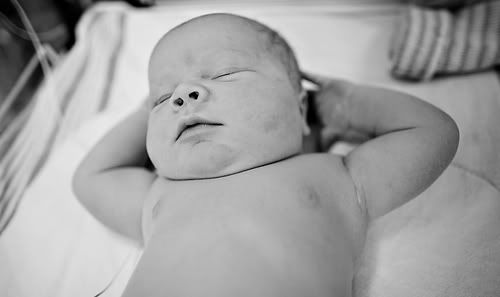 Sleep plays an important role in our overall health including heart, blood pressure, brain function organization and metabolism.
Sleep plays an important role in our overall health including heart, blood pressure, brain function organization and metabolism.
Sleep Apnea is a sleep disorder than affects breathing and oxygen levels during sleep. It is a life-threatening disorder that should be taken as seriously as any other health related issue.
Losing weight does help improve the symptoms of sleep apnea. It reduces snoring, improves the severity and frequency of our sleep apnea episodes; but it is not considered a cure for sleep apnea.
Your CPAP machine is a physician prescribed devise that helps keep your airway open and should not be discontinued until you have been retested. Retesting is simple and important for weight loss, keeping it off and our overall health. Sleep well !
"let me sleep on it"

Did you ever think about sleep and how important it is? Why do we even need sleep? Did you know that fish don't sleep, they don't even have eyelids. If you were a giraffe, you would only sleep ten minutes a day. Dolphins only sleep with half their brain at a time so that the other half can keep them swimming. Don't you wish half of you could go to work while the other half sleeps? Cows get only three hours of sleep every twenty-four hours. We, humans, need more sleep than we think...
A national experiment, revealed that in 1850's the average person got nine and a half hours of sleep per night. BY 1910, the average per night was seven hours. Today we get two and a half hours less sleep that 150 years ago. One-third of us get less than six hours of sleep per night. In a poll done by the American Medical News in 1999, twenty-seven percent of the general population admits to falling asleep while driving just within that year.
Sleep comes in four stages, one of which is REM sleep. This is when we dream. REM is important because this is when our thoughts are organized and creativity is nourished.
While you sleep your brain is reviewing all the things that you have learned or done during the day. While you sleep your brain is busy reviewing, sorting, organizing, prioritizing, problem solving, and memorizing. So when it comes to being smarter, you only lose if you don't snooze. Sleep is also responsible for controlling our metabolism, so you do lose...weight that is! To lose or not to lose, that is the question!
During REM sleep our mind is on hyperalert and our muscles are paralyzed. This keeps us from jumping our of bed during our dreams.
So now you know more about getting proper amounts of sleep. (also see post on "Sleep Apnea").
Did you know the best cure for insomnia is to get more sleep?
Sleep tight...
sleeping like a baby

Finally, I have my new CPAP machine and looking forward to a good night's sleep. They used to say that you could not “catch up” on sleep, but studies show you can, that is according to Mark Harrell, who used to be involved in sleep study research. Mark is married to my cousin, Wendy, and has been very instrumental in helping me understand sleep apnea.
Mark, who is now a PA, helped me decipher my sleep study reports and just as suspected, even though I am at a normal weight, I still have sleep apnea. My sleep pressures remained the same even though I don’t have as many episodes as before weight loss, I still need my CPAP machine. After a while of not using my machine some of my symptoms had returned, such as morning headaches and tiredness.
I would encourage you if you were diagnosed with sleep apnea before weight loss surgery, do not give up your CPAP machine until you have been rechecked. Mark says too much pressure can be as bad as not enough.
First ask your physician to give you a prescription for the “auto trial”. After the trial, if you need to continue your CPAP, you will want to find out if your insurance company will pay for an auto titration CPAP machine, or you could pay the difference. You can request that your physician prescribe this auto-adjusting machine, which adjusts the pressure, as you need it.
I’m really hoping that going back to my CPAP will help with maintaining my weight loss and restore my energy. I’ll keep you updated of how things are going…Sweet dreams!
sleep study

Last week I had an “auto titrating study” done. I’ll share my results in an additional post later. I will get my new CPAP this morning and find out more information on my sleep apnea results.
However, I think it's important that we stay informed so here are some statements copied from several sources included Webmed and Reuters Health quoted the recent study done and reported by the Journal of Clinical Sleep Medicine.
NEW YORK (Reuters Health) - In people who are obese, weight-loss surgery will likely lead to an improvement in obstructive sleep apnea (OSA) but it won't eliminate the nighttime breathing disorder. Many patients will have residual OSA one year after weight-loss surgery results of a study indicate.
"There are numerous benefits to weight loss by any means, (including) a reduction in the severity of OSA," study leader Dr. Christopher Lettieri of Walter Reed Army Medical Center in Washington, DC, told Reuters Health. "However, patients and their physicians should understand that OSA can occur in the absence of obesity, and losing weight, even if substantial, may not resolve OSA."
OSA is a common problem, particularly among the obese, in which tissues in the back of the throat temporarily collapse during sleep causing numerous, brief episodes of interrupted breathing. It can be effectively treated with a special "CPAP" breathing device that alleviates the blockage by pushing air into throat.
In a study designed to clarify the impact of bariatric surgery on OSA, 24 morbidly obese patients underwent overnight sleep studies before and 1 year after bariatric surgery.
All of them had OSA at the start of the study and surgical weight loss resulted in substantial improvements in the severity of OSA, Lettieri and colleagues report in the Journal of Clinical Sleep Medicine.
However, all but one patient had persistent OSA despite their weight loss. "In fact, the majority still had moderate to severe disease, which would require continued treatment," Lettieri said. Two people had a worsening of their OSA despite significant weight loss.
"OSA," Lettieri said, "is associated with numerous adverse effects on health and quality of life, especially in those with moderate to severe disease. If present, it should be treated."
These findings emphasized the inappropriateness of relying on weight loss as a "cure" for obstructive sleep apnea, Dr. Lettieri and colleagues said. Failing to recognize or treat persistent obstructive sleep apnea may significantly impact health and quality of life, leading to ensuing weight gain and increased cardiovascular risks," they wrote.
Patients having weight-loss surgery, he added, should not assume their OSA has resolved and should have a repeat sleep study prior to discontinuing their OSA treatment.
Although obesity can be a complication with OSA, about 40% of people with sleep apnea are not obese. It has been thought, and previous studies have shown, that OSA will get better if people who are obese lose weight.
Most patients thought they'd stopped snoring after bariatric surgery -- only 29% reported snoring postoperatively -- but 95.8% snored during their follow-up polysomnography.
OSA may itself promote weight gain through ineffective sleep, impaired glucose metabolism, and hormonal imbalances. Bariatric surgery may not correct sleep disorders associated with severe obesity.
Primary source: Journal of Clinical Sleep Medicine August 2008;
Source reference:
Lettieri CJ, et al "Persistence of Obstructive Sleep Apnea After Surgical Weight Loss"
don’t give up

Like most of you, following weight loss surgery, there were lots of things we have had to give up in the process, however, there are some things that we may have given up that we shouldn’t.
According to a study published in the Journal of Clinical Sleep Medicine, 24 severely obese adults were tested for obstructive sleep apnea before and after getting weight loss surgery and again a year later.
Even though they trimmed their BMI from 51 before surgery to 32 a year later, patients were still obese, but a lot less so than before bariatric surgery. The study found that only one of the patients no longer had obstructive sleep apnea a year after surgery.
Their sleep apnea was changed after surgery, their symptoms eased to varying degrees, but not enough to end their obstructive sleep apnea. All the other patients with obstructive sleep apnea still needed continuous positive airway pressure (CPAP) machines to help them breathe better at night. Only six of these patients were using their CPAP machines.
There are a few thing I’ve learned you shouldn’t give up: meals, protein supplements, prescription medications (until your doctor releases you), and your CPAP machine, (until you are retested for sleep apnea and no longer need it).
There is a machine that can determine the pressure you need, if any, and you can do it in your own home. I am in the process of having a retest (called an "auto trial") for sleep apnea this week…I’ll let you know the outcome…I will tell you that in the four nights that I have been using the CPAP machine again, I have lost four pounds and I have more energy. Believe me, the last thing I wanted was to go back to using the CPAP…but breathing is essential…and I’ve come too far to give up now. Getting sleep is important to your health as well as regulates your metabolism.
Don’t give up….you have many more miles to go.
